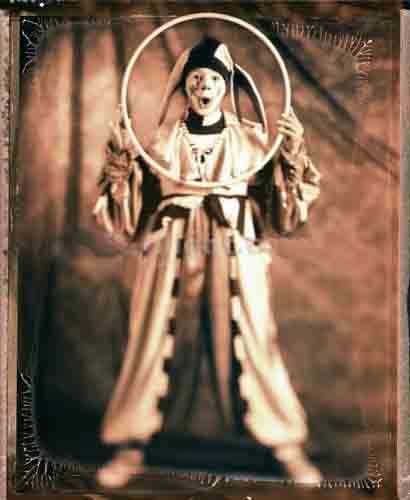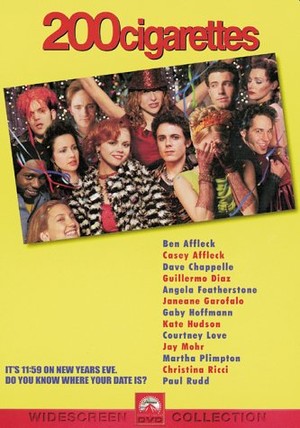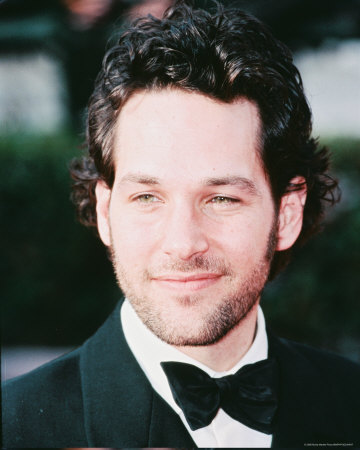In the office I have now, there is a giant magnet board covered with quotations and ideas I put up on three by five index cards. I have a magnet up there from the ad campaign for Chuck Palahniuk’s book Stranger than Fiction. It reads: The difference between how you look and how you see yourself is enough to kill most people.
Oddly, the cringe-worthy incident that comes to mind whenever I consider that statement wasn’t all that close or personal. I used to be a bit of a barfly myself and I had one of those drinking buddies who’s always egging you on—half participant in and half audience to your hi-jinx. I’m a prankster and my pal was a Canadian with very little knowledge of American popular culture, an easy target.
We were at the end of the evening, this was about four years ago, and she was flirting and I was bored…and very, very drunk. Some scraggly looking man came in with a few friends just before closing and she suggested I flirt with him. I looked at the man again. He was moderately good looking, but wearing a ridiculous hunting cap—you know, the kind with ear flaps that models were wearing in ads for about five minutes but otherwise have been off the scene since your ancestors really did shoot their dinner.
 Remembering her gullibility and forgetting her lack of a reference point, I decided it would be funny to pretend that I couldn’t flirt with the guy because he was Paul Rudd. “Who?” Well, he’s kind of a movie star. “So?” And he’s married. “I don’t buy it. Look at that hat.” Okay, I’ll prove it.
Remembering her gullibility and forgetting her lack of a reference point, I decided it would be funny to pretend that I couldn’t flirt with the guy because he was Paul Rudd. “Who?” Well, he’s kind of a movie star. “So?” And he’s married. “I don’t buy it. Look at that hat.” Okay, I’ll prove it.
See, I have no problem making a fool of myself for a laugh. I’ll convince total strangers to pitch in if I think I can pull one over on a friend. I stick my neck out for your chagrin. So, I go over to the table where the scraggly man is sitting with his friends and I wait for a couple of minutes while they completely ignore me.
 Finally, one of the women looks up at me and sneers, “Can we help you?” I say, yes! It’s a long story, I say, but I would be so grateful if you would walk over to that girl at the bar and tell her your name is Paul Rudd. Before I can launch into an explanation of how much fun it is to fuck with Canadians, the man nods. He says, “If you’ll just let us finish our conversation I’ll be happy to introduce myself.”
Finally, one of the women looks up at me and sneers, “Can we help you?” I say, yes! It’s a long story, I say, but I would be so grateful if you would walk over to that girl at the bar and tell her your name is Paul Rudd. Before I can launch into an explanation of how much fun it is to fuck with Canadians, the man nods. He says, “If you’ll just let us finish our conversation I’ll be happy to introduce myself.”
Okay, I thought, they’re not in the full spirit of it, but they’re cooperating. I go back to the bar. I tell her “Paul Rudd” will be right over. But he doesn’t do it right away and pretty soon the build up is going to be too big and the joke won’t be funny anymore. I’m frustrated and I am glaring at him. I may have motioned to my watch. By the time they’re getting up to leave, I’m totally annoyed. As they pass by the bar on their way out, I give him the look. Dude, you’re fucking it up!
 It was only when he, slightly embarrassed, politely introduced himself as Paul that I realized he was kind of a movie star. I woke up the next morning absolutely mortified and Hell bent on somehow remedying the situation. I found an address and wrote a letter. It was returned. (I still have it somewhere, the record of my humiliation sealed.) To this day, I can’t watch a movie this guy is in without getting a stomach cramp. He’s not everywhere, but he’s just there enough. Every time I come close to forgetting, I’m blindsided by P.S. or The 40 Year Old Virgin.
It was only when he, slightly embarrassed, politely introduced himself as Paul that I realized he was kind of a movie star. I woke up the next morning absolutely mortified and Hell bent on somehow remedying the situation. I found an address and wrote a letter. It was returned. (I still have it somewhere, the record of my humiliation sealed.) To this day, I can’t watch a movie this guy is in without getting a stomach cramp. He’s not everywhere, but he’s just there enough. Every time I come close to forgetting, I’m blindsided by P.S. or The 40 Year Old Virgin.
What’s the big? In that moment, I was a total tourist. And I’m so not that guy. Snob: yes. Arrogant: arguably. Idiot: looking more and more likely all the time. But I don’t ask for anyone’s autograph. If I bother you, it’s because I’m the foolhardy maker of mirth. If I’m ever talking to somebody famous or important, it’s because they’re talking to me. I don’t really give a rat’s ass what Paul Rudd thinks of me, except it kills me that he—or rather I—got it so wrong.
Whether or not we have a specific agenda—perfecting the thrall or simulating mere coherence—we’re all cultivating a persona. The truth is, at the very least we want others to see us the way we see ourselves. We do care, in a certain respect, what everyone else thinks of us.
While I was on vacation recently, I was sitting in a friend’s living room talking with her friends about men and women, parents and children, all the stuff I like to talk about. One of them lives in my neighborhood in Brooklyn. It was cool to hang out with her in LA because at home I usually only run into her on the subway. Often I see her on the platform with her husband and I try to slip by unnoticed because they look so…in love. The scene is nothing so base as a Hallmark commercial, but they are tactile and mutually engrossed.
Back in LA she made a comment about him touching her and being so attentive, “I need that reassurance, it’s just part of my personality.” She immediately became my hero. I wish I were that settled within my own skin. And could say it out loud. Someday.
There’s this thing that happens with my voice when I talk to different people; it fluctuates according to a subconscious evaluation of how the other person will react to me. When I talk to men I don’t know or the person running the Fed Ex desk, my tone automatically lifts to a girlish pitch and I smile. I’ve dubbed this hypocritical knee-jerk reaction acquired situational schizophrenia. Because that’s how it makes me feel, like an ASS.
I’ve given up on correcting the ASS. It’s too ingrained in me. There are other things I’ve resolved to work out though. I’ve been sifting through my personality lately trying to determine the parts that came with the package and the add-ins I’ve accumulated along the way, which parts I like and don’t like. There are so many tics and tricks we learn without even noticing. That little spasm, for instance, that tells me not to trust. I don’t think it’s my nature. I don’t think it’s anyone’s.
 One point of interest that Bukowski documentary did expose was the disintegration of the myth along with the growth of the man. In his later years Hank was finally getting recognition for his work and some money—and even the idealist in me has come to understand the importance of both of these things. He had Linda, who wouldn’t take his shit and wouldn’t leave him either. He was drinking less and less. In the end of his life, the tortured soul looked to be content. He had a bluebird in his heart. He might not have wanted us to see it, but on the screen it was as clear as day.
One point of interest that Bukowski documentary did expose was the disintegration of the myth along with the growth of the man. In his later years Hank was finally getting recognition for his work and some money—and even the idealist in me has come to understand the importance of both of these things. He had Linda, who wouldn’t take his shit and wouldn’t leave him either. He was drinking less and less. In the end of his life, the tortured soul looked to be content. He had a bluebird in his heart. He might not have wanted us to see it, but on the screen it was as clear as day.
What I think is that you don’t get to choose a happy life or a successful career; it’s not even a toss up. If you do more than just show up, that’s when life gets interesting. When you stop having an exit strategy for every entrance, then something real might happen. If you allow yourself not to be the person you think you are, you could be on to something big. It might be called living.

Beautiful writing, beautiful connections. My favorite blog series of yours ever.
I loved the Bukowski doc, too, and a large part of it was because I went in thinking this guy was just an outspoken, misogynistic guy who happened to write good poetry and turned off the DVD thinking that, for all his struggles, he was a pretty good guy who struggled to write honest, great poetry. It was one of those wonderful surprises that only happen when you’re not really looking.
Thanks for the rec.